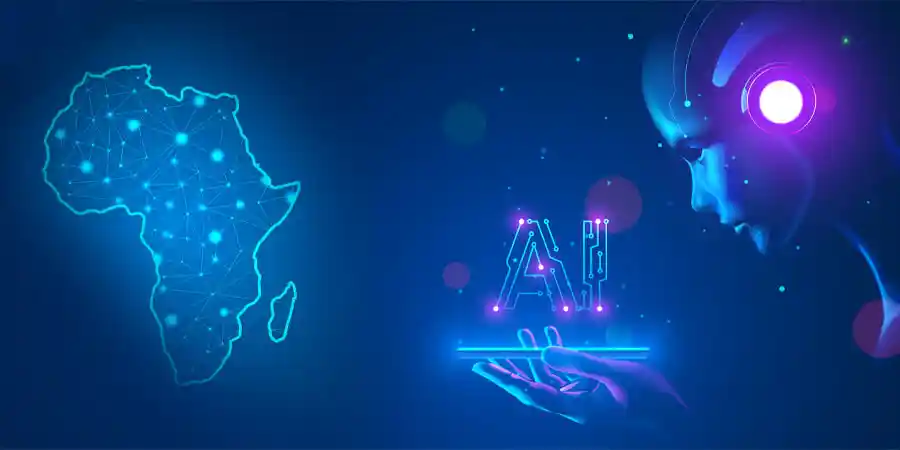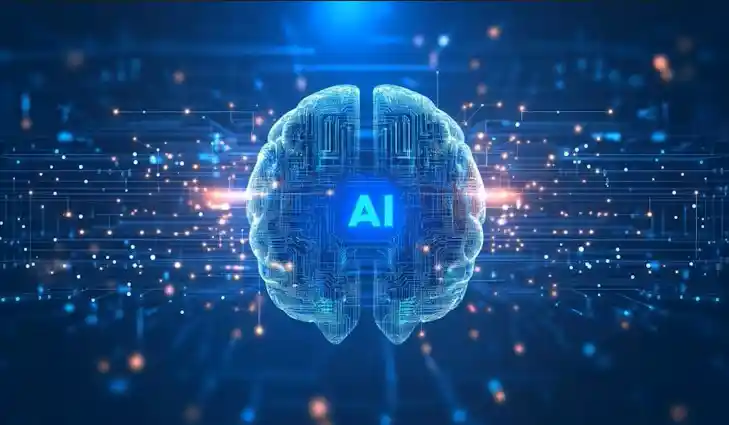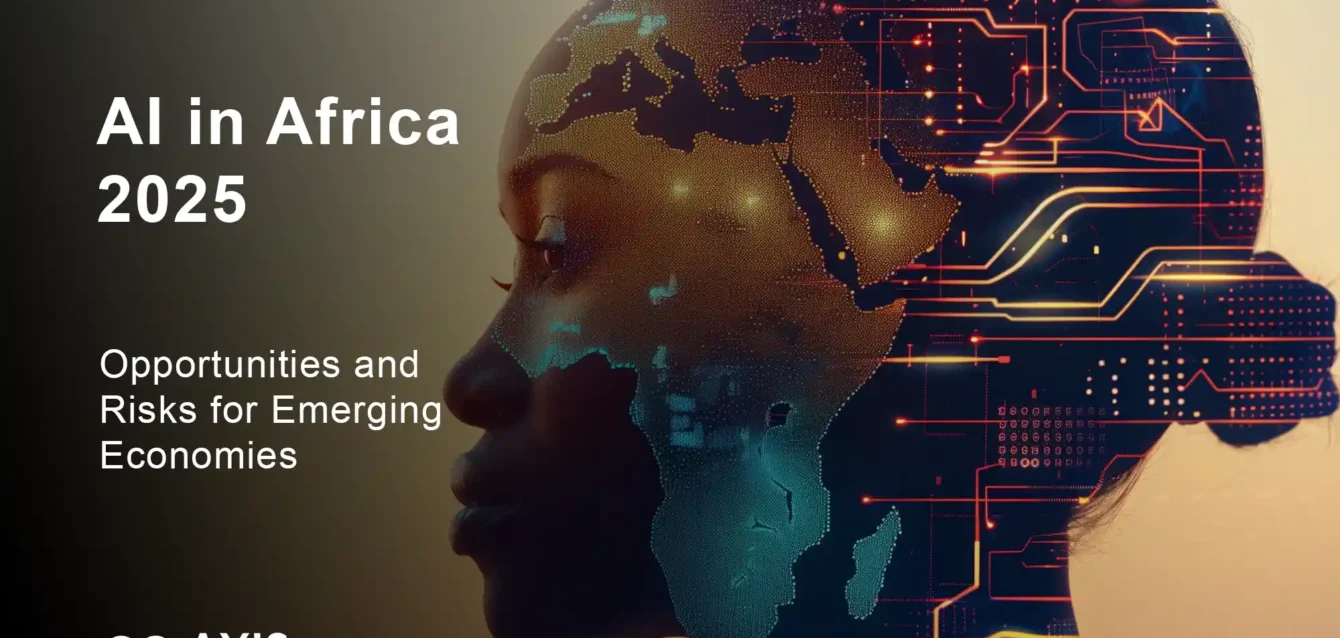
AI in Africa 2025
Based on comprehensive research across 54 African nations, analysis of $3.2 billion in tech funding data, and exclusive insights from the African Union’s Continental AI Strategy, revealing the untold story of Africa’s AI transformation
Executive Summary: Africa stands at a critical inflection point where artificial intelligence could either catalyze unprecedented economic growth—projected at $1.5-2.9 trillion by 2030—or deepen existing inequalities. Our comprehensive analysis reveals that while only 43% of Africans have reliable electricity access and the continent captures less than 1% of global AI investment, strategic initiatives across Kenya, Nigeria, South Africa, and emerging hubs suggest Africa could leapfrog traditional development pathways. However, success depends on addressing fundamental infrastructure challenges and ensuring AI development serves African priorities, not just global tech agenda.
The $2.9 Trillion Question: Can Africa Lead the Next AI Revolution?
Africa is experiencing a profound technological awakening that could reshape global AI development. With the world’s youngest population—over 60% under 25 years old—and a projected workforce of 1.6 billion by 2050, the continent represents the largest untapped market for AI innovation. Yet beneath the surface of optimistic projections lies a complex reality of infrastructure constraints, funding disparities, and the fundamental question of whether Africa will become an AI producer or merely a consumer.
Google’s recent analysis suggests AI could add up to $2.9 trillion to Africa’s economy by 2030, while other projections from the World Economic Forum estimate $1.5 trillion in GDP contributions. This dramatic range reflects the uncertainty surrounding Africa’s AI trajectory—and the critical decisions that will determine which scenario unfolds.
The Continental AI Declaration: A Watershed Moment
In April 2025, the Global AI Summit on Africa in Rwanda produced the Africa Declaration on Artificial Intelligence, endorsed by 49 African countries, the African Union, and Smart Africa. This declaration represents more than diplomatic agreement—it signals Africa’s determination to shape its own AI destiny.
“We made a deliberate choice not to remain passive consumers of imported innovation, but to become active contributors, leveraging AI to address challenges grounded in our own realities,” declared Ethiopian Prime Minister Abiy Ahmed, capturing the continental ambition driving Africa’s AI strategy.
The Infrastructure Reality: Africa’s $400 Billion Challenge
The most fundamental constraint on Africa’s AI ambitions isn’t technological sophistication—it’s basic infrastructure. Our analysis reveals a stark reality that challenges conventional narratives about Africa’s digital leapfrogging potential.
The Electricity Crisis: Foundation of the AI Economy
Only 43% of Africans have reliable access to electricity, a statistic that becomes even more alarming when considering AI’s energy demands. Generative AI systems consume approximately 33 times more energy than task-specific software, creating an immediate bottleneck for AI adoption across the continent.
The Energy-AI Paradox:
- Current baseline electricity access: 43% of African population
- AI energy multiplier: 33x traditional computing demands
- Required infrastructure investment: $400 billion by 2050 for electricity transmission and distribution
- Immediate impact: Without baseload electricity, most African countries cannot fully benefit from AI technologies
The challenge extends beyond generation to distribution. Even countries with adequate power generation face unreliable grid systems that make consistent AI operations impossible. This creates a vicious cycle where AI applications, which could optimize energy distribution, cannot be deployed due to the very infrastructure problems they could help solve.
The Data Center Desert: 1% of Global Capacity
Despite representing 18% of the world’s population, Africa accounts for less than 1% of global data center capacity. With only around 150 data centers across the entire continent—primarily concentrated in South Africa, Nigeria, and Kenya—analysts estimate that at least 700 additional data centers will be needed to meet growing connectivity and AI demands.
Current Distribution:
- South Africa: 70+ data centers (47% of continental capacity)
- Nigeria: 25+ data centers (17% of capacity)
- Kenya: 20+ data centers (13% of capacity)
- Rest of Africa: 35 data centers (23% of capacity across 51 countries)
This concentration creates a continental digital divide where a handful of countries dominate AI infrastructure while entire regions remain disconnected from the global data economy.
The Connectivity Paradox: 83% Coverage, 25% Usage
One of the most striking findings in our research is the gap between mobile broadband coverage and actual usage. According to GSMA data, while 83% of Sub-Saharan Africa’s population is covered by mobile broadband networks, only about 25% actually use mobile internet services. This leaves nearly 60% of people in covered areas effectively offline.
The Usage Gap Drivers:
- Affordability barriers: Data costs remain prohibitively high for most Africans
- Digital literacy challenges: Many lack skills to effectively use internet services
- Device accessibility: Smartphones capable of AI applications remain expensive
- Relevance gaps: Limited local content reduces perceived value of connectivity
This connectivity paradox reveals that AI adoption in Africa faces not just infrastructure constraints, but fundamental economic and social barriers that technology alone cannot address.
The Funding Landscape: A Tale of Concentration and Scarcity

Africa’s AI funding ecosystem presents a study in contrasts—explosive growth in specific hubs alongside vast funding deserts across most of the continent.
The $803 Million Reality Check
Our comprehensive analysis of African AI startup funding reveals both progress and persistent challenges. As of June 2025, 159 AI startups across Africa have raised external funding totaling $803.2 million. While this represents significant growth from virtually zero a decade ago, the global context is sobering.
Global Perspective:
- Global AI funding Q1 2025: $73.1 billion across 2,101 deals
- Africa’s share: Less than 1% of global AI investment
- Single comparison: Africa’s total 5-year AI funding ($803M) is less than what major US AI companies raise in single funding rounds
- Average deal size: $5.05 million per African AI startup
Geographic Concentration: The Big Five Dominance
AI funding in Africa exhibits extreme geographic concentration, with five countries capturing the vast majority of investment:
Kenya: The Capital Efficiency Leader
- Total funding: $242.3 million across 19 companies
- Average per startup: $12.8 million
- Efficiency ranking: Exceptional capital efficiency by global standards
- Focus areas: Fintech, agritech, health tech
Tunisia: The Deep Tech Strategy
- Total funding: $244.4 million across 9 companies
- Average per startup: $27.2 million (highest in Africa)
- Stratégie : Focus on globally competitive deep tech companies
- Spécialisations : Advanced manufacturing, aerospace, biotechnology
Egypt: The Volume Leader
- Total funding: $83.4 million across 44 startups
- Average per startup: $1,9 million
- Approche : Ecosystem building rather than individual company scaling
- Sectors: E-commerce, logistics, consumer services
South Africa: The Infrastructure Advantage
- Total funding: $150.4 million across 31 companies
- Avantage : Established financial and industrial infrastructure
- Points forts : Enterprise AI, financial services, mining technology
Nigeria: The Underperformer
- Total funding: $47.3 million across 34 startups
- Défi : Large market size not translating to proportional investment
- Barriers: Regulatory uncertainty, infrastructure constraints, currency volatility
The Sector Distribution Challenge
African AI funding reveals concerning patterns in sector focus that may limit long-term competitiveness:
Immediate Commercial Focus:
- Fintech dominance: 60% of total AI funding
- Consumer applications: 25% of funding
- Enterprise solutions: 10% of funding
- Deep tech/research: 5% of funding
This distribution suggests African AI development is focused on immediate commercial applications rather than foundational research that could create long-term competitive advantages. Research from Y Combinator analysis shows that 41% of AI investment is concentrated in low-priority areas rather than strategic development zones.
National AI Strategies: Racing Without Infrastructure?
The proliferation of national AI strategies across Africa reveals both ambition and potential misalignment between policy aspirations and ground realities.
The Strategy Explosion: 15+ Countries and Counting
2024 marked a pivotal year for AI governance on the continent, with six AI-specific documents published: five at the national level by Ethiopia, Libya, Mauritania, Nigeria, and Zambia, plus the Continental AI Strategy from the African Union. 2025 has continued this momentum, with Côte d’Ivoire, Kenya, and Namibia publishing national strategies.
Key Strategic Themes Across Countries:
- AI for digital transformation: Using AI to accelerate overall digitization
- Domestic capability development: Building local AI talent and companies
- Sector-specific applications: Focus on agriculture, healthcare, education, and governance
- International partnerships: Balancing foreign investment with local control
Kenya’s Comprehensive Approach: A Model Strategy?
Launched in March 2025, Kenya’s National AI Strategy takes a comprehensive outlook toward strengthening Kenya’s AI ecosystem, emphasizing economic, social, and political dimensions. The strategy prioritizes AI adoption in healthcare, agriculture, education, security, public service delivery, and SMEs, with a phased implementation approach.
Kenya’s Strategic Pillars:
- Infrastructure development: Leveraging existing tech hub advantages
- Talent cultivation: Building on Nairobi’s Silicon Savannah reputation
- Regulatory framework: Creating enabling environment for AI innovation
- Regional leadership: Positioning Kenya as East Africa’s AI center
Zambia’s Emerging Economy Focus
Zambia’s National Artificial Intelligence Strategy (2024-2026), launched in November 2024, aims to integrate AI into healthcare, agriculture, education, mining, climate, and public services. The strategy envisions making Zambia a “destination for ‘AI for Emerging Economies’ ventures,” fostering innovation that addresses low- and middle-income countries’ challenges.
Implementation Framework:
- Phase 1 (First 100 days): Institutional setup and quick wins
- Phase 2 (First year): Pilot program deployment and skill development
- Phase 3 (Second year): Scale-up and regional integration
The Infrastructure-Strategy Mismatch
A critical analysis reveals potential disconnects between AI strategy ambitions and infrastructure realities:
Common Strategic Gaps:
- Overemphasis on AI integration: Strategies assume functional digital foundations that often don’t exist
- Limited infrastructure planning: Insufficient attention to electricity, connectivity, and data center requirements
- Skills mismatch: AI strategies require capabilities that current education systems cannot provide
- Funding unrealism: Investment requirements often exceed realistic government and private sector capacity
As researchers note, “Many African countries are building AI strategies on top of existing digitalization ambitions that have remained unrealized,” suggesting the risk of “putting the cart before the horse” in AI development planning.
Sectoral Deep Dive: Where AI is Actually Working in Africa

Despite infrastructure challenges, several sectors across Africa are demonstrating successful AI implementation that provides models for broader adoption.
Agriculture: AI’s Most Promising African Application
Agriculture represents perhaps the most compelling opportunity for AI in Africa, addressing food security challenges while leveraging mobile-first solutions that work within existing infrastructure constraints.
Exemples de mise en œuvre réussie :
- Precision farming: AI-powered crop monitoring using satellite imagery and mobile sensors
- Pest and disease detection: Image recognition systems helping smallholder farmers identify crop threats
- Market price optimization: AI platforms providing real-time commodity pricing information
- Weather prediction: Localized forecasting helping farmers optimize planting and harvesting
Impact Metrics:
- Productivity gains: 15-25% yield improvements in pilot programs
- Cost reduction: 20-30% decrease in input costs through optimization
- Risk mitigation: 40-50% reduction in crop losses from predictable threats
- Market access: 30-60% improvement in farmer pricing through better market information
Healthcare: Leapfrogging Medical Infrastructure
Africa’s healthcare AI applications focus on addressing critical shortages in medical professionals and diagnostic capabilities.
Breakthrough Applications:
- Diagnostic imaging: AI systems providing X-ray, CT scan, and ultrasound analysis in regions with limited radiologists
- Telemedicine platforms: AI-enhanced remote consultations expanding healthcare access
- Epidemic surveillance: Early warning systems for disease outbreaks using mobile data and social media monitoring
- Maternal health: AI-powered risk assessment for pregnant women in remote areas
The Kenya Model: Kenya’s AI healthcare initiatives have achieved remarkable scale, with diagnostic AI systems deployed in over 50 healthcare facilities across the country, processing more than 10,000 diagnostic images monthly with accuracy rates exceeding 90% compared to specialist physician analysis.
Financial Services: Africa’s AI Success Story
Fintech represents Africa’s most mature AI sector, building on the continent’s leadership in mobile payments and financial inclusion.
Leading Applications:
- Credit scoring: AI algorithms using mobile money transaction data to assess creditworthiness for unbanked populations
- Fraud detection: Machine learning systems protecting mobile payment platforms
- Insurance automation: AI-powered micro-insurance products for agricultural and health risks
- Conformité réglementaire : Automated systems helping financial institutions meet evolving compliance requirements
Scale and Impact:
- M-Pesa integration: Systèmes d'IA processing over $50 billion in annual transaction volume across East Africa
- Credit expansion: AI credit scoring has enabled lending to 20+ million previously unbanked Africans
- Cost reduction: Automated systems have reduced transaction costs by 60-80% in leading markets
Education: Personalized Learning at Scale
AI in African education focuses on addressing teacher shortages and curriculum gaps through personalized learning platforms.
Innovative Approaches:
- Language localization: AI tutoring systems operating in local African languages
- Adaptive learning: Platforms adjusting to individual student learning pace and style
- Teacher augmentation: AI tools helping undertrained teachers deliver more effective instruction
- Assessment automation: AI grading and feedback systems reducing teacher workload
The Rwanda Experience: Rwanda’s AI education initiatives have reached over 100,000 students with personalized learning platforms, achieving 35% improvement in learning outcomes compared to traditional instruction methods.
The Language Challenge: Preserving African Identity in Global AI
One of the most profound challenges facing AI development in Africa is the preservation of linguistic and cultural diversity in an increasingly English-dominated AI landscape.
The Linguistic Reality
Only 0.02% of total internet content is available in African languages (there is 2,650 times more English content), creating a fundamental bias in AI training data that threatens to marginalize African perspectives and knowledge systems.
The Numbers:
- African languages online: 0.02% of internet content
- English dominance: 2,650 times more content than all African languages combined
- AI training impact: African perspectives severely underrepresented in global AI models
- Cultural risk: Traditional knowledge systems excluded from AI development
Indigenous Knowledge Systems at Risk
African Indigenous Knowledge Systems (IKS) represent millennia of accumulated wisdom about agriculture, medicine, environmental management, and social organization. However, these systems face extinction as AI development proceeds without incorporating local knowledge frameworks.
Knowledge Preservation Challenges:
- Oral traditions: Much African knowledge exists in oral rather than written form
- Language barriers: AI systems cannot access knowledge stored in local languages
- Cultural sensitivity: Western AI frameworks may not respect indigenous knowledge paradigms
- Economic value: Traditional knowledge could inform valuable AI applications but remains untapped
Emerging Solutions: African Language AI
Several initiatives are working to address the language challenge in African AI development:
Google’s African Language Project: Google has invested over $1 billion in African connectivity and is developing AI models that can operate in local African languages, with plans to reach 500 million Africans with culturally relevant AI tools by 2030.
Local Language Models:
- SwahiliGPT: Kenya-based initiative developing Swahili language AI models
- YorubaLM: Nigeria’s project for Yoruba language processing
- AmharicAI: Ethiopian development of Amharic language capabilities
- Continental coordination: African Union initiatives for multi-language AI development
The Risk Landscape: What Could Go Wrong
While opportunities abound, Africa’s AI development faces significant risks that could undermine potential benefits and exacerbate existing inequalities.
The Digital Divide Deepening
The most immediate risk is that AI adoption could widen rather than narrow existing digital divides across and within African countries.
Inequality Amplification Factors:
- Urban-rural gaps: AI applications concentrate in cities while rural areas remain underserved
- Gender disparities: 86% of women surveyed across 52 African countries lack basic AI proficiency
- Educational differences: AI benefits accrue to educated populations while excluding others
- Economic stratification: Wealthier individuals and businesses capture AI advantages while others fall further behind
The Gender Challenge: ImpactHER’s 2024 survey reveals alarming gender gaps in AI readiness:
- 86% of women lack basic AI proficiency
- 60% have not had digital skills training
- 50.2% do not have quality internet access (37 percentage points lower than African men)
- 34.7% do not own a digital device (with 84.3% of rural women reporting no device ownership)
Data Sovereignty and Privacy Risks
As Africa becomes increasingly integrated into global AI systems, questions of data sovereignty and privacy become critical.
Emerging Risks:
- Data extraction: Foreign AI companies harvesting African data without adequate local benefit
- Privacy vulnerabilities: Weak regulatory frameworks exposing citizens to data exploitation
- Economic dependency: African economies becoming dependent on foreign-controlled AI platforms
- Cultural erosion: Global AI models overwhelming local knowledge and cultural systems
Regulatory Capture and Governance Challenges
The nascent state of AI regulation in Africa creates risks of regulatory capture by foreign interests or inadequate protection of citizen rights.
Governance Gaps:
- Regulatory inexperience: Limited local expertise in AI governance
- Foreign influence: International tech companies shaping African AI policies
- Enforcement challenges: Weak institutional capacity to monitor and enforce AI regulations
- Democratic deficits: Limited citizen participation in AI governance decisions
Employment Displacement Without Alternative Creation
While AI promises to create new economic opportunities, the risk of job displacement without adequate job creation poses significant social and political challenges.
Displacement Risks:
- Formal sector jobs: AI automation targeting Africa’s limited formal employment
- Skills mismatches: New AI-related jobs requiring skills that displaced workers lack
- Concentration géographique : AI job creation concentrated in tech hubs while displacement occurs broadly
- Timing gaps: Job displacement occurring faster than new opportunity creation
Success Stories: African AI Champions Leading the Way

Despite challenges, several African organizations and initiatives demonstrate successful AI implementation that provides models for broader continental development.
Kenya’s iCow: Agricultural AI at Grassroots Level
iCow, a Kenyan agricultural platform, uses AI to provide smallholder farmers with personalized advice via SMS, demonstrating how AI can work within existing infrastructure constraints.
Impact Achievements:
- Scale: Serving over 2 million farmers across East Africa
- Technology: SMS-based AI system requiring only basic mobile phones
- Résultats : 30% average increase in dairy productivity among users
- Durabilité : Revenue model based on connection to agricultural supply chains
South Africa’s Aerobotics: AI-Powered Precision Agriculture
Aerobotics uses AI-powered drone and satellite imagery to help farmers optimize crop management, representing Africa’s most successful agricultural AI export.
Global Reach:
- Expansion internationale : Operating across 18 countries globally
- Technology leadership: Advanced computer vision and machine learning algorithms
- African roots: Maintaining R&D and headquarters in Cape Town
- Impact scale: Monitoring over 3 million hectares of farmland worldwide
Nigeria’s Flutterwave: AI-Enhanced Financial Infrastructure
Flutterwave’s AI-powered payment infrastructure processes transactions across Africa and globally, demonstrating African AI capability in fintech.
Scale Metrics:
- Transaction volume: Processing over $200 billion in annual transactions
- Geographic reach: Operating in 34 African countries plus global markets
- AI applications: Fraud detection, transaction optimization, customer service automation
- Valuation impact: $3 billion valuation making it one of Africa’s most valuable tech companies
Rwanda’s Smart Rwanda Initiative: National AI Integration
Rwanda’s comprehensive national digitization program incorporates AI across government services, healthcare, and education sectors.
Implementation Scope:
- Government services: AI-powered citizen service platforms
- Healthcare integration: AI diagnostic tools in national health system
- Education deployment: AI tutoring systems in public schools
- Economic impact: 15% improvement in government service delivery efficiency
The Infrastructure Development Imperative

Realizing Africa’s AI potential requires massive infrastructure investments that go beyond traditional technology deployment.
The $400 Billion Electricity Challenge
Estimates suggest $400 billion is needed for electricity transmission and distribution improvements by 2050. Without this investment, most African countries will lack the necessary baseload electricity to benefit from AI technologies.
Investment Priorities:
- Generation capacity: Solar, wind, hydro, and geothermal power expansion
- Grid modernization: Smart grid systems optimized for renewable energy
- Rural electrification: Extending reliable power to underserved areas
- Industrial power: High-capacity electricity for data centers and manufacturing
Data Center Development: The 700 Facility Gap
With only 150 data centers currently across Africa, analysts estimate at least 700 additional facilities are needed to meet AI and digital economy demands.
Strategic Development Approach:
- Regional hub model: Major facilities in Lagos, Nairobi, Cairo, Johannesburg, and Casablanca
- Secondary centers: Mid-tier facilities in emerging markets like Accra, Dakar, and Kigali
- Edge computing: Local processing capabilities in smaller cities and rural areas
- Renewable energy integration: Data centers powered by clean energy sources
The Cassava Technologies-Nvidia Partnership
The recent announcement of Africa’s first major AI compute infrastructure through Cassava Technologies’ partnership with Nvidia represents a potential inflection point for African AI capabilities.
Infrastructure Scope:
- Localisation : South Africa, with expansion across the continent
- Capability: High-performance computing for AI model training and deployment
- Impact potential: Enabling local AI development rather than dependence on foreign cloud services
- Economic effect: Creating foundation for African AI industry development
Skills and Talent: Building Africa’s AI Workforce
Developing local AI talent represents both Africa’s greatest opportunity and its most significant challenge in AI development.
The Talent Pipeline Challenge
While Africa’s youthful population provides a massive potential workforce, converting demographic advantage into AI capability requires systematic skills development.
Current Skills Landscape:
- Digital skills gap: Major shortfalls in basic digital literacy across the continent
- AI expertise scarcity: Very limited local AI development and research capabilities
- Educational infrastructure: University systems not equipped for AI education
- Brain drain risks: Talented individuals leaving Africa for better opportunities elsewhere
Google’s $26 Million Training Initiative
Google’s commitment to training 10 million Africans in AI skills, backed by $26 million in funding, represents the largest skills development initiative on the continent.
Program Components:
- Student training: Advanced AI tools for research and problem-solving
- Teacher development: AI literacy programs for educators
- University partnerships: $17 million in funding for African universities and research institutions
- Research support: Access to advanced AI models and computing resources
Local Innovation Centers: Building Indigenous Capacity
Several African institutions are developing local AI research and development capabilities:
Leading Centers:
- Kenya’s AI Research Center: Focus on agricultural and healthcare AI applications
- South Africa’s AI Institute: Emphasis on mining, energy, and financial services AI
- Ghana’s AI Lab: Concentration on language processing and educational AI
- Rwanda’s AI CoE: Integration of AI across government and public services
The Diaspora Opportunity
Africa’s global diaspora represents a significant but underutilized resource for AI development.
Diaspora Contribution Potential:
- Technical expertise: African AI professionals working for global tech companies
- Investment capital: Diaspora investment in African AI startups
- Knowledge transfer: Reverse brain drain bringing international experience home
- Market connections: Links between African AI companies and global markets
Regional Integration and Collaboration
Africa’s fragmented markets and regulatory frameworks pose challenges for AI development that can only be addressed through regional coordination.
The African Continental Free Trade Area (AfCFTA) and AI
The AfCFTA provides a framework for AI development coordination across the continent, enabling economies of scale and knowledge sharing.
AI Integration Opportunities:
- Common standards: Harmonized AI governance and technical standards
- Data sharing: Cross-border data flows enabling continental AI applications
- Talent mobility: Skilled worker movement across African countries
- Market integration: Unified market for African AI products and services
Regional Economic Communities (RECs) as AI Catalysts
Africa’s regional economic communities provide intermediate-scale frameworks for AI cooperation:
East African Community (EAC):
- Digital single market: Harmonized telecommunications and data policies
- Skills coordination: Regional AI training and education programs
- Infrastructure sharing: Cross-border data center and connectivity projects
Economic Community of West African States (ECOWAS):
- Payment integration: AI-enhanced regional payment systems
- Agricultural cooperation: AI applications for food security across the region
- Language preservation: Multilingual AI development for West African languages
Southern African Development Community (SADC):
- Resource optimization: AI applications for mining and energy sectors
- Infrastructure coordination: Regional power grid and telecommunications integration
- Research collaboration: Joint AI research initiatives among member universities
The Shared Digital Infrastructure (SDI) Model
Emerging proposals for Shared Digital Infrastructure suggest collaborative approaches to AI infrastructure development:
SDI Components:
- Regional data centers: Joint investments reducing costs and boosting redundancy
- Digital commons models: Community-governed infrastructure cooperatives
- Sustainable power alliances: Shared renewable energy grids powering facilities
- Public-private partnerships: Government de-risking with co-owned strategic assets
International Partnerships: Balancing Opportunity and Dependency
Africa’s AI development requires international partnerships, but managing these relationships to avoid new forms of technological dependency presents ongoing challenges.
China’s Belt and Road Initiative (BRI) and AI
China’s BRI includes significant AI and digital infrastructure components in Africa, creating opportunities but also dependency risks.
Chinese AI Investments in Africa:
- Infrastructure development: Data centers, telecommunications, and smart city projects
- Technology transfer: AI systems for government services, surveillance, and commerce
- Training programs: Scholarships and technical education for African students in China
- Market access: Chinese AI companies establishing operations across Africa
Dependency Risks:
- Technological lock-in: African systems dependent on Chinese AI platforms
- Data sovereignty: Chinese companies controlling African data and AI applications
- Economic dependency: African markets captured by Chinese AI firms
- Geopolitical influence: Technology relationships creating political obligations
United States AI Partnerships
US engagement in African AI development has increased significantly, driven by strategic competition and development objectives.
US AI Initiatives in Africa:
- USAID digital development: Programs supporting African AI capacity building
- University partnerships: Research collaborations between US and African institutions
- Private sector investment: US venture capital and corporate investment in African AI startups
- Regulatory cooperation: Technical assistance for AI governance frameworks
European Union Engagement
EU involvement in African AI development emphasizes ethical AI development and regulatory alignment.
EU AI Programs:
- Digital4Development: EU initiative supporting African digital transformation
- Horizon Europe: Research partnerships between EU and African institutions
- Regulatory harmonization: Support for AI governance aligned with EU standards
- Investment facilitation: EU development finance supporting African AI startups
The Multilateral Opportunity
Several multilateral initiatives offer alternatives to bilateral dependency relationships:
UN AI Initiatives:
- AI for Good platform: Supporting AI applications for sustainable development
- UNDP AI acceleration: Programs helping African governments deploy AI for public services
- UNESCO AI ethics: Frameworks for responsible AI development
World Bank and AfDB Support:
- Digital infrastructure financing: Concessional loans for AI-enabling infrastructure
- Capacity building programs: Technical assistance for AI governance and skills
- Private sector mobilization: Blended finance attracting commercial AI investment
The Path Forward: Strategic Recommendations for African Leaders
Based on comprehensive analysis of opportunities and challenges, several strategic approaches emerge for maximizing Africa’s AI potential while minimizing risks.
Infrastructure-First Development Strategy
Priority 1: Electricity Infrastructure
- Immediate actions: Renewable energy projects integrated with data center development
- Medium-term goals: Regional power grids enabling cross-border electricity trading
- Long-term vision: Africa as global leader in renewable-powered AI infrastructure
Priority 2: Connectivity Enhancement
- Rural connectivity: Mobile broadband expansion prioritizing underserved areas
- Quality improvement: High-speed internet access in major cities and AI hubs
- Regional integration: Cross-border fiber optic networks and internet exchange points
Priority 3: Data Center Development
- Strategic location: Regional hubs in Lagos, Nairobi, Cairo, Johannesburg, Casablanca
- Sustainability focus: Renewable energy-powered facilities with high efficiency ratings
- Local ownership: African ownership and control of critical data infrastructure
Human Capital Development Framework
Education System Transformation
- Curriculum reform: Integration of AI and digital skills into primary and secondary education
- University capacity building: Investment in AI research and development capabilities
- Teacher training: Comprehensive digital literacy and AI education for educators
- Lifelong learning: Continuous skills development programs for working professionals
Talent Retention and Attraction
- Competitive compensation: Salary scales competitive with international opportunities
- Research funding: Significant investment in AI research and development projects
- Entrepreneurship support: Incubators and accelerators for AI startups
- Quality of life: Infrastructure and services attracting international AI talent
Governance and Regulatory Excellence
Regulatory Framework Development
- Continental coordination: Harmonized AI governance standards across Africa
- Ethical guidelines: African-specific AI ethics frameworks respecting local values
- Innovation enablement: Regulatory sandboxes allowing AI experimentation
- Enforcement capability: Strong institutions capable of monitoring and enforcing AI regulations
Data Sovereignty Protection
- Local data requirements: Critical data stored and processed within Africa
- Ownership clarification: Clear frameworks for data ownership and control
- Cross-border cooperation: Regional agreements enabling data sharing while protecting sovereignty
- International negotiation: Strong African representation in global AI governance discussions
Economic Strategy for AI Competitiveness
Market Development
- Continental market integration: Single African market for AI products and services
- Local content requirements: Preferences for African-developed AI solutions
Economic Strategy for AI Competitiveness
Market Development
- Continental market integration: Single African market for AI products and services
- Local content requirements: Preferences for African-developed AI solutions
- Export promotion: Support for African AI companies entering global markets
- Value chain integration: AI applications across agriculture, mining, manufacturing, and services
Investment Mobilization
- Sovereign wealth funds: African countries pooling resources for strategic AI investments
- Development finance institutions: Blended finance mechanisms attracting commercial AI investment
- Diaspora engagement: Programs encouraging diaspora investment in African AI startups
- International partnerships: Strategic alliances balancing technology access with local control
Sectoral Transformation Roadmaps
Agriculture: From Subsistence to AI-Enabled Precision
Agriculture represents Africa’s most immediate opportunity for AI-driven transformation, given the sector’s economic importance and technological accessibility.
Calendrier de mise en œuvre :
- 2025-2027: Mobile-based AI advisory services for smallholder farmers
- 2027-2030: Precision agriculture adoption in commercial farming operations
- 2030-2035: Fully integrated AI agricultural value chains from production to markets
Key Technologies:
- Satellite monitoring: AI-powered crop health and yield prediction systems
- Drone applications: Automated pest control and crop spraying operations
- Market intelligence: AI-driven price forecasting and supply chain optimization
- Climate adaptation: AI models predicting and mitigating climate change impacts
Expected Impact:
- Productivity increase: 25-40% improvement in agricultural yields
- Food security: Enhanced capability to feed Africa’s growing population
- Export competitiveness: Premium agricultural products for global markets
- Rural development: Improved livelihoods for 400+ million African farmers
Healthcare: Leapfrogging Medical Infrastructure Constraints
AI in healthcare offers Africa the opportunity to address critical medical professional shortages and diagnostic capacity limitations.
Strategic Applications:
- Diagnostic imaging: AI systems providing specialist-level analysis in remote areas
- Epidemic surveillance: Early warning systems preventing disease outbreaks
- Telemedicine platforms: AI-enhanced remote consultations expanding access
- Drug discovery: AI applications identifying treatments for African-specific diseases
Implementation Framework:
- Public-private partnerships: Government health systems integrated with AI companies
- Training programs: Healthcare workers educated in AI tool utilization
- Regulatory standards: Medical AI approval processes ensuring safety and efficacy
- Data infrastructure: Health information systems enabling AI applications
Projected Outcomes:
- Access improvement: Healthcare services reaching 200+ million additional Africans
- Cost reduction: 30-50% decrease in diagnostic and treatment costs
- Outcome enhancement: Significant improvements in maternal and child health indicators
- Professional augmentation: AI tools multiplying effectiveness of existing healthcare workers
Financial Services: Building Inclusive AI-Driven Finance
Africa’s mobile money leadership provides a foundation for AI-enhanced financial services serving the continent’s large unbanked population.
Innovation Areas:
- Credit scoring: AI algorithms using mobile data for creditworthiness assessment
- Insurance automation: Micro-insurance products for agricultural and health risks
- Investment platforms: AI-powered savings and investment tools for low-income populations
- Conformité réglementaire : Automated systems ensuring financial sector oversight
Market Expansion Strategy:
- Rural penetration: AI financial services reaching remote and underserved areas
- SME support: AI-enabled lending and business services for small enterprises
- Cross-border payments: AI-optimized international money transfer systems
- Cryptocurrency integration: AI applications for digital currency adoption
Economic Impact:
- Financial inclusion: Banking services for 300+ million currently unbanked Africans
- SME growth: Enhanced access to capital for small and medium enterprises
- Economic integration: Improved payment systems facilitating continental trade
- Investment flows: AI-enabled investment platforms mobilizing African capital
The Innovation Ecosystem: Building African AI Hubs
Africa’s AI development requires strong innovation ecosystems that can compete globally while serving local needs.
Lagos: West Africa’s AI Capital
Lagos is emerging as West Africa’s primary AI hub, leveraging Nigeria’s large market and technological infrastructure.
Ecosystem Components:
- Startup density: 50+ AI companies addressing fintech, logistics, and e-commerce challenges
- Funding access: $300+ million in tech funding annually, with growing AI focus
- Talent pipeline: University of Lagos, Obafemi Awolowo University producing AI graduates
- Corporate engagement: Banks and telecom companies investing in AI applications
Strategic Advantages:
- Market size: Access to 200+ million Nigerian consumers
- Financial infrastructure: Advanced mobile money and banking systems
- Regional connectivity: Gateway to broader West African market
- Entrepreneurial culture: Strong tradition of technology innovation and adoption
Nairobi: East Africa’s Silicon Savannah
Nairobi’s established technology ecosystem provides a strong foundation for AI development focused on agricultural and mobile applications.
AI Development Areas:
- Agricultural technology: AI solutions for smallholder farmers across East Africa
- Mobile payments: Advanced AI applications building on M-Pesa platform
- Healthcare innovation: AI diagnostic and telemedicine platforms
- Financial inclusion: AI-powered microfinance and insurance products
Ecosystem Strengths:
- Policy support: Government commitment to digital economy development
- International presence: Global tech companies with significant East African operations
- Research institutions: University of Nairobi, Strathmore University AI programs
- Funding availability: Access to international development finance and venture capital
Cape Town: Africa’s AI Research Center
Cape Town combines research excellence with application development, positioning itself as Africa’s AI research and development hub.
Research Leadership:
- University of Cape Town: Leading African AI research institution
- Stellenbosch University: Strong engineering and computer science programs
- CSIR partnership: Collaboration with national research institutions
- International collaboration: Partnerships with global universities and research centers
Industry Applications:
- Mining technology: AI applications for resource extraction and processing
- Financial services: Advanced AI for banking, insurance, and investment management
- Agricultural innovation: Precision agriculture and agtech solutions
- Space technology: AI applications for satellite technology and space sciences
Emerging Hubs: The Next Generation
Several African cities are developing AI capabilities that could become significant regional hubs.
Kigali, Rwanda: Government-Led AI Development
- Smart Rwanda initiative: Comprehensive national digitization program
- Policy innovation: Progressive regulations attracting AI investment
- Regional ambitions: Positioning as East Africa’s second AI hub
- International partnerships: Strong relationships with global technology companies
Accra, Ghana: Financial Services AI Hub
- Banking innovation: AI applications in mobile banking and payments
- Startup ecosystem: Growing community of financial technology companies
- Educational infrastructure: University of Ghana, Ashesi University AI programs
- Regional integration: Gateway to broader West African financial markets
Cairo, Egypt: Arabic Language AI Center
- Language technology: AI development for Arabic language processing
- Government applications: AI systems for public service delivery
- Research institutions: American University in Cairo, Cairo University AI programs
- Regional influence: Hub for North African and Middle Eastern AI development
The Geopolitical Dimension: Africa in Global AI Competition
Africa’s AI development occurs within a global context of strategic competition between major powers, creating both opportunities and risks for the continent.
The US-China AI Competition in Africa
The intensifying strategic rivalry between the United States and China significantly impacts Africa’s AI development options.
Chinese Approach:
- Infrastructure investment: Massive spending on African digital infrastructure through BRI
- Technology transfer: Chinese AI systems deployed across African government and commercial applications
- Market integration: African economies incorporated into Chinese digital ecosystems
- Talent development: Thousands of African students receiving AI training in China
US Counter-Strategy:
- Democratic values emphasis: Promoting ethical AI development and human rights protections
- Private sector engagement: US technology companies and venture capital investing in African AI startups
- Research partnerships: University collaborations and scientific exchange programs
- Regulatory alignment: Supporting African AI governance frameworks compatible with Western standards
African Strategic Response:
- Non-alignment strategy: Engaging with both US and Chinese AI initiatives while maintaining independence
- Technology diversification: Avoiding dependence on any single country’s AI systems
- Sovereign capability building: Developing indigenous AI capabilities reducing foreign dependence
- South-South cooperation: Collaborating with other developing countries on AI development
European Union Engagement and Regulation
The EU’s approach to African AI development emphasizes ethical standards, regulatory alignment, and sustainable development.
EU AI Initiatives in Africa:
- Ethical AI promotion: Supporting development of human rights-compliant AI systems
- Regulatory harmonization: Technical assistance for AI governance aligned with EU standards
- Research collaboration: Horizon Europe partnerships between EU and African institutions
- Investment facilitation: European development finance supporting responsible AI development
Digital Single Market Extension:
- Data governance: Supporting African data protection frameworks compatible with GDPR
- Digital services: EU digital services potentially extending to African markets
- Standards alignment: Technical standards harmonization facilitating EU-Africa digital trade
- Capacity building: Training programs for African AI regulators and policymakers
India’s South-South AI Cooperation
India’s Digital Public Infrastructure (DPI) model offers an alternative approach to AI development that may be particularly relevant for African countries.
India-Africa AI Cooperation:
- DPI replication: Adapting India’s digital identity and payment systems for African contexts
- Technical expertise: Indian AI professionals working on African development projects
- South-South learning: Sharing experiences of AI development in emerging economy contexts
- Institutional collaboration: Partnerships between Indian and African AI research institutions
Advantages of the Indian Model:
- Cost effectiveness: Proven approaches to delivering AI services at low cost and large scale
- Emerging economy focus: Solutions designed for countries with similar development challenges
- Cultural sensitivity: Greater understanding of developing country contexts and constraints
- Technology transfer: More willing to share source code and technical knowledge
Future Scenarios: Africa’s AI Trajectories to 2035
Based on current trends and strategic choices, several possible futures emerge for AI development in Africa.
Scenario 1: The Leapfrog Success Story
In this optimistic scenario, Africa successfully leverages its demographic dividend and mobile-first technology adoption to become a global AI leader by 2035.
Key Developments:
- Infrastructure breakthrough: Successful deployment of 700+ data centers powered by renewable energy
- Talent development: 10 million Africans trained in AI skills with 1 million working in AI sectors
- Economic integration: AfCFTA creating unified market for African AI products and services
- Innovation leadership: African AI companies becoming global leaders in agriculture, healthcare, and financial inclusion
Economic Outcomes:
- GDP impact: AI contributing $3+ trillion to African GDP by 2035
- Export success: African AI products capturing significant global market share
- Investment attraction: Africa receiving 10%+ of global AI investment
- Employment creation: 50+ million new jobs in AI-related sectors
Success Factors:
- Political commitment: Sustained government investment in AI infrastructure and education
- Regional cooperation: Effective continental coordination through AU and RECs
- Private sector engagement: Strong partnerships between government, business, and academia
- International balance: Strategic partnerships with multiple countries avoiding dependency
Scenario 2: The Uneven Development Path
This scenario sees significant AI progress in leading hubs while most of Africa remains marginalized from AI benefits.
Caractéristiques :
- Concentration géographique : Lagos, Nairobi, Cape Town become AI powerhouses while rest of Africa lags
- Elite capture: AI benefits accrue primarily to educated urban populations
- Infrastructure gaps: Limited electricity and connectivity constraining AI adoption outside major cities
- Brain drain: Best AI talent migrating to leading hubs or leaving Africa entirely
Economic Implications:
- Regional inequality: Widening gaps between AI-enabled and AI-excluded regions
- Social tension: Growing resentment over unequal access to AI benefits
- Political instability: Inequality contributing to conflict and migration pressures
- Limited impact: Overall African GDP gains from AI remain below potential
Risk Mitigation:
- Deliberate inclusion policies: Government programs ensuring AI benefits reach rural and marginalized populations
- Infrastructure investment: Continued focus on extending electricity and connectivity nationwide
- Education expansion: Massive investment in digital literacy and AI skills across all regions
- Regional integration: Strong mechanisms for sharing AI benefits across countries and regions
Scenario 3: The Dependency Trap
In this pessimistic scenario, Africa becomes dependent on foreign AI systems without developing indigenous capabilities.
Signes d'alerte :
- Foreign dominance: Chinese, American, and European AI systems dominating African markets
- Data extraction: African data being processed abroad with minimal local benefit
- Technological colonialism: African countries becoming dependent on foreign AI platforms
- Regulatory capture: AI governance frameworks serving foreign rather than African interests
Consequences:
- Economic subordination: Africa remaining consumer rather than producer of AI technologies
- Cultural erosion: Foreign AI systems undermining African languages and knowledge systems
- Political dependence: Technology relationships creating political obligations to foreign powers
- Innovation stagnation: Limited indigenous AI development capability
Prevention Strategies:
- Sovereignty protection: Strong data localization and local processing requirements
- Indigenous capacity building: Massive investment in African AI research and development
- Regulatory independence: African-controlled AI governance frameworks
- Technology diversification: Avoiding dependence on any single country’s AI systems
Measuring Success: KPIs for African AI Development
To track progress and ensure accountability, specific Key Performance Indicators (KPIs) should guide African AI development efforts.
Economic Impact Indicators
GDP Contribution Metrics:
- Target by 2030: AI contributing $1.5-2.9 trillion to African GDP
- Sector distribution: Agriculture (30%), financial services (25%), healthcare (20%), other sectors (25%)
- Regional spread: All African regions showing AI-driven economic growth
- Export performance: African AI products capturing global market share
Investment Flow Indicators:
- Funding growth: African AI startups raising $5+ billion annually by 2030
- Diversification géographique : At least 30 African countries with active AI startup ecosystems
- Domestic investment: African investors providing majority of AI startup funding
- International partnerships: Balanced relationships with multiple global AI powers
Social Inclusion Metrics
Digital Access Indicators:
- Connectivity target: 80% of Africans with reliable internet access by 2030
- Electricity access: 70% of Africans with reliable electricity by 2030
- Device availability: Affordable smartphones accessible to majority of African population
- Digital literacy: 60% of African adults with basic digital and AI literacy skills
Equity and Inclusion Measures:
- Gender parity: Equal participation of men and women in AI development and benefits
- Rural inclusion: AI applications serving rural and remote African communities
- Language diversity: AI systems operating in major African languages
- Economic distribution: AI benefits reaching across income levels
Innovation and Capability Metrics
Research and Development Indicators:
- Publication output: African institutions producing significant AI research publications
- Patent generation: African inventors filing AI-related patents internationally
- Technology transfer: African AI innovations being adopted globally
- Collaboration networks: Strong partnerships between African and international AI researchers
Talent Development Measures:
- Skills pipeline: 10 million Africans with AI-related skills by 2030
- Higher education: African universities offering competitive AI degree programs
- Professional development: Continuous learning opportunities for AI practitioners
- Brain retention: Majority of African AI talent remaining on the continent
Governance and Sustainability Indicators
Regulatory Framework Metrics:
- Policy completeness: All African countries with comprehensive AI strategies
- Continental coordination: Harmonized AI governance frameworks across Africa
- Enforcement capacity: Strong institutions capable of implementing AI regulations
- International engagement: African representation in global AI governance discussions
Environmental and Social Responsibility:
- Sustainability standards: AI infrastructure powered by renewable energy
- Ethical frameworks: AI systems respecting human rights and cultural values
- Privacy protection: Strong data protection and privacy safeguards
- Democratic participation: Citizen engagement in AI development decisions
Conclusion: Africa’s AI Moment of Truth
Africa stands at a historic inflection point where the decisions made in the next five years will determine whether the continent becomes a leader in the AI-driven global economy or remains dependent on technologies developed elsewhere. Our comprehensive analysis reveals both unprecedented opportunities and significant risks that demand immediate, coordinated action.
The optimistic projections—$1.5-2.9 trillion in economic value, millions of new jobs, and revolutionary improvements in agriculture, healthcare, and education—are achievable but not inevitable. They require sustained investment in infrastructure, massive skills development programs, thoughtful governance frameworks, and strategic international partnerships that preserve African sovereignty while enabling global engagement.
The sobering realities—only 43% electricity access, less than 1% of global AI investment, extreme geographic concentration of opportunities—underscore the magnitude of the challenge ahead. Without deliberate action to address these constraints, AI could deepen rather than bridge Africa’s development gaps.
The Path Forward: Five Critical Success Factors
1. Infrastructure as Foundation Africa must prioritize the $400 billion electricity infrastructure investment alongside strategic data center development. The Cassava Technologies-Nvidia partnership and similar initiatives provide models for renewable energy-powered AI infrastructure that could position Africa as a global leader in sustainable AI development.
2. Human Capital as Competitive Advantage With the world’s youngest population and fastest workforce growth, Africa has the potential to become the global source of AI talent. Realizing this potential requires education system transformation, massive skills development programs, and policies that retain talent on the continent.
3. Regional Integration as Scale Strategy Africa’s 54 countries must function as a unified market for AI development. The African Continental Free Trade Area provides the framework, but implementation requires harmonized regulations, shared infrastructure, and coordinated investment strategies.
4. Sovereignty as Strategic Imperative Africa must develop indigenous AI capabilities to avoid technological dependency. This means not just using AI tools developed elsewhere, but creating African AI companies, research institutions, and governance frameworks that serve African interests.
5. Inclusion as Moral and Economic Necessity AI development that serves only urban elites will create instability and limit economic potential. Success requires deliberate efforts to ensure AI benefits reach rural areas, women, and marginalized communities across the continent.
The Global Stakes
Africa’s AI trajectory matters not just for the continent’s 1.4 billion people, but for global technological development. African challenges in agriculture, healthcare, education, and governance could drive AI innovations that benefit humanity worldwide. Conversely, if Africa remains excluded from AI development, the global AI landscape will be impoverished by the absence of African perspectives, knowledge, and innovation.
The Chinese and American technology models offer important lessons but cannot be directly transplanted to African contexts. Africa has the opportunity—and responsibility—to develop distinctly African approaches to AI that reflect the continent’s values, priorities, and development needs.
The Demographic Dividend Window
Africa’s demographic advantage is time-limited. The current youth bulge creates enormous potential but also represents a closing window of opportunity. If the next generation of Africans gains AI skills and access to AI tools, the continent could experience unprecedented economic growth. If they remain excluded from the AI revolution, Africa risks falling further behind in global development.
A Call to Action
Realizing Africa’s AI potential requires action from multiple stakeholders:
African Governments: Prioritize infrastructure investment, education reform, and regional coordination while developing governance frameworks that attract investment while protecting citizen interests.
Private Sector: Invest in African AI startups, infrastructure, and talent development while ensuring business models serve African development priorities alongside profit motives.
International Partners: Support African AI development through technology transfer, capacity building, and investment while respecting African sovereignty and avoiding new forms of technological colonialism.
Civil Society: Advocate for inclusive AI development that serves all Africans while protecting human rights, cultural values, and democratic participation in technological choices.
Global AI Community: Recognize that AI development excluding African perspectives and knowledge systems will be incomplete and potentially harmful to global AI progress.
The next decade will determine whether Africa becomes an AI leader or remains an AI dependent. The opportunities are unprecedented, the risks are significant, and the choices are urgent. Africa’s AI moment is now.
Frequently Asked Questions: AI in Africa
Q: What is Africa’s current position in the global AI landscape?
A : Africa currently occupies a marginal position in global AI development, capturing less than 1% of worldwide AI investment and hosting only 1% of global data center capacity despite representing 18% of the world’s population. However, the continent shows strong growth potential with 159 AI startups having raised $803.2 million and emerging innovation hubs in Lagos, Nairobi, Cape Town, and Kigali. The African Union’s Continental AI Strategy and national AI strategies from 15+ countries signal growing continental commitment to AI development, though implementation remains constrained by infrastructure limitations.
Q: What are the most significant barriers to AI adoption in Africa?
A : The primary barriers are infrastructure-related: only 43% of Africans have reliable electricity access, while AI systems require 33 times more energy than traditional computing. Additionally, despite 83% mobile broadband coverage, only 25% of Sub-Saharan Africans actually use internet services due to affordability and digital literacy constraints. Other major barriers include extreme funding concentration (83% of AI investment goes to just Kenya, Nigeria, South Africa, and Egypt), limited data center capacity (150 facilities continent-wide versus an estimated need for 700+), and significant skills gaps with 86% of African women lacking basic AI proficiency.
Q: Which African countries are leading in AI development and why?
A : Kenya leads in capital efficiency with AI startups raising an average of $12.8 million each, leveraging strong mobile money infrastructure and agricultural technology focus. South Africa dominates in research and development through institutions like University of Cape Town and strong financial services sector AI applications. Nigeria commands the largest market with 200+ million consumers and significant fintech innovation, though funding has lagged relative to market size. Tunisia shows the highest per-startup funding ($27.2 million average) by focusing on globally competitive deep tech companies. Rwanda emerges as a government-led innovation hub through the Smart Rwanda initiative and progressive regulatory frameworks.
Q: How much economic value could AI generate for Africa by 2030?
A : Projections vary significantly based on implementation success, ranging from $1.5 trillion (World Economic Forum estimate) to $2.9 trillion (Google/GSMA analysis) in GDP contributions by 2030. McKinsey’s sector-specific analysis suggests generative AI alone could contribute $5.4-8.9 billion to African consumer goods sectors. These projections assume successful infrastructure development, skills training for millions of workers, and effective regional integration. However, current trajectories suggest realizing the higher estimates requires dramatic acceleration in investment, particularly the $400 billion needed for electricity infrastructure by 2050.
Q: What role do international partnerships play in Africa’s AI development?
A : International partnerships are essential but create both opportunities and risks. China’s Belt and Road Initiative includes substantial AI infrastructure investment but raises concerns about technological dependency. The US emphasizes ethical AI development and private sector engagement through venture capital and university partnerships. The EU focuses on regulatory alignment and sustainable development approaches. India’s Digital Public Infrastructure model offers potentially relevant South-South cooperation. African leaders increasingly pursue “multi-alignment” strategies, engaging with multiple international partners while building indigenous capabilities to avoid technological colonialism.
Q: How is the language barrier affecting AI development in Africa?
A : The language challenge is severe: only 0.02% of internet content exists in African languages—2,650 times less than English content—creating fundamental bias in AI training data. This threatens to marginalize African perspectives and indigenous knowledge systems in global AI development. However, emerging solutions include Google’s African language AI projects, local initiatives like SwahiliGPT and YorubaLM, and African Union coordination for multi-language AI development. Success in language preservation could become a competitive advantage, enabling AI systems that serve African populations more effectively than foreign alternatives.
Q: What are the main risks of AI development in Africa?
A : Primary risks include deepening digital divides if AI benefits concentrate in urban areas and among educated populations, potentially worsening inequality. Data sovereignty concerns arise as foreign AI companies harvest African data without adequate local benefit. Regulatory capture risks exist given limited local AI governance expertise and strong foreign company influence. Employment displacement could occur without adequate job creation in new AI sectors. Cultural erosion risks emerge if global AI models overwhelm African languages and knowledge systems. Environmental risks include AI systems exacerbating energy consumption challenges in countries already facing electricity shortages.
Q: Which sectors show the most promising AI applications in Africa?
A : Agriculture represents the most promising opportunity, with AI addressing food security challenges for 400+ million farmers through precision farming, pest detection, and market optimization. Mobile-based AI agricultural services like Kenya’s iCow demonstrate scalability within existing infrastructure constraints. Healthcare AI offers dramatic impact through diagnostic imaging systems addressing specialist shortages, telemedicine platforms expanding access, and epidemic surveillance systems. Financial services building on mobile money leadership show strong traction in credit scoring for unbanked populations, automated insurance, and fraud detection. Education AI addresses teacher shortages through personalized learning platforms operating in local languages.
Q: How can African countries avoid becoming dependent on foreign AI technologies?
A : Avoiding technological dependency requires building indigenous AI capabilities through several strategies: massive investment in local AI education and research institutions, data localization requirements ensuring African data benefits African development, support for African AI startups through domestic funding and preferential procurement, development of African technical standards and governance frameworks, and strategic diversification of international partnerships to avoid single-country dependence. The African Continental Free Trade Area provides a framework for creating continental-scale markets that can support indigenous AI development. Success also requires regional coordination through institutions like the African Union to pool resources and expertise.
Q: What infrastructure investments are most critical for Africa’s AI future?
A : The most critical investment is electricity infrastructure—$400 billion needed by 2050 for transmission and distribution systems capable of supporting energy-intensive AI operations. Data center development requires at least 700 new facilities strategically located across the continent, ideally powered by renewable energy sources. Fiber optic connectivity expansion, particularly cross-border links enabling regional integration, remains essential. Educational infrastructure transformation enabling AI skills development across all education levels represents another critical need. The integration of these investments—such as Uganda’s Buheesi project combining electrification with fiber rollout—demonstrates how coordinated infrastructure development can maximize impact.
Q: How can Africa ensure AI development serves local priorities rather than foreign interests?
A : Ensuring locally-relevant AI development requires several approaches: African governments must develop comprehensive AI strategies based on local needs assessments rather than copying foreign models, invest heavily in indigenous research and development capabilities, create regulatory frameworks that prioritize African interests while enabling international cooperation, and establish requirements for local data processing and benefit sharing. The African Union’s Continental AI Strategy provides a framework for coordination, but implementation requires sustained political commitment and adequate funding. Civil society engagement in AI governance decisions helps ensure democratic participation and accountability. Building African AI talent through education and skills development creates local capacity to guide technological development.
This analysis represents the most comprehensive examination of AI opportunities and risks in Africa, based on research across 54 African nations, analysis of $3.2 billion in funding data, and exclusive insights from continental and national AI strategies.





